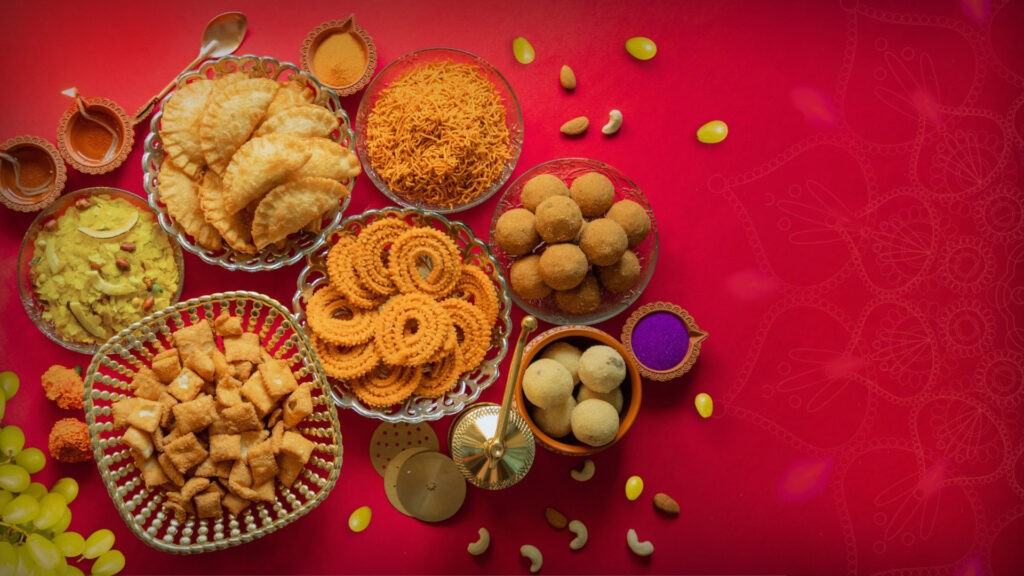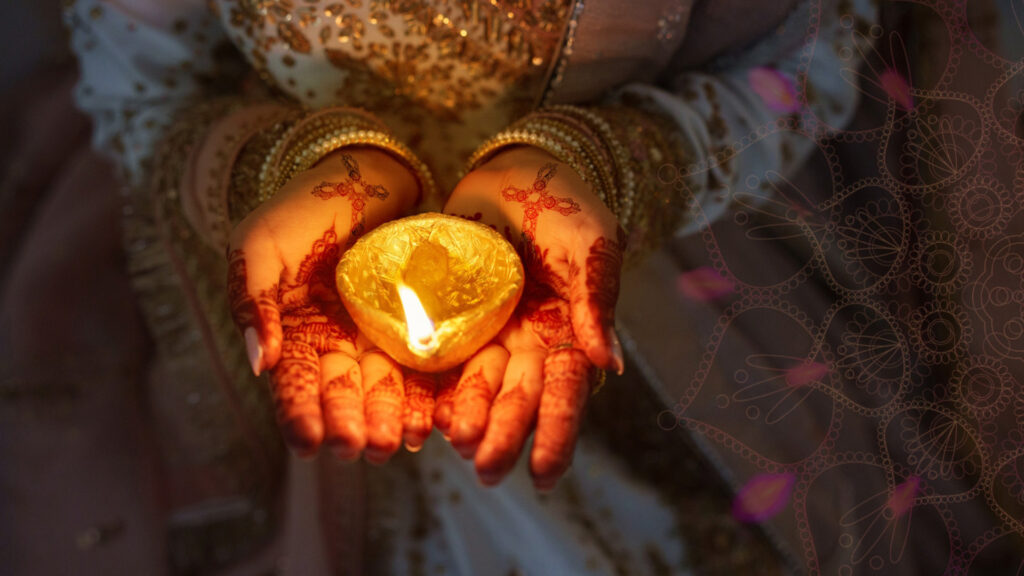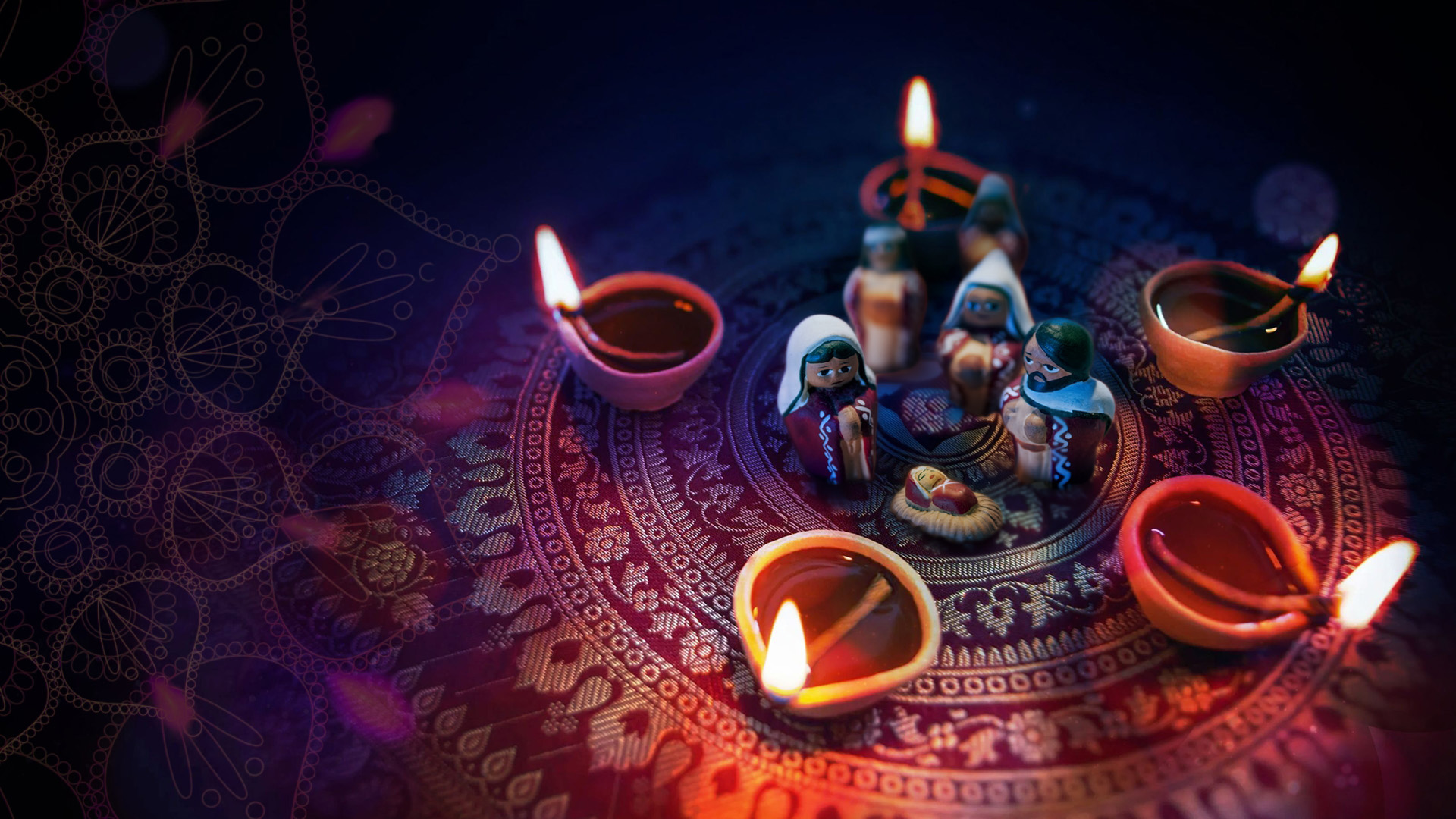Editor's Note
This new series explores the holidays of world religions to help us understand and engage meaningfully and missionally with our neighbours of other beliefs in practical ways. In this series, we uncover what we can learn from these festivals that can enrich our biblical understanding, discipleship and mission. Each article invites the church to deepen faith, reach out to religious communities with humility and love, and participate in God’s reconciling mission to the world.
Introduction
Growing up in a Hindu home in India, Diwali was the equivalent of Christmas in North America. It was preceded by weeks of excitement and anticipation. Like most little children, I couldn’t wait for Diwali to come. I would write out a list of the fireworks I wanted to buy. A highlight of this festival is the fireworks—sparklers, loud explosive crackers, and rockets launched into the night sky, creating a colorful display.
As Hindus celebrate the triumph of good over evil and the victory of light over darkness, these metaphors mirror clear gospel themes that can point people to Jesus.
Diwali, known as the ‘Festival of Lights’, is one of the most significant celebrations in the Hindu calendar. For Christians, a special occasion like Diwali can serve as an excellent opportunity to build bridges and share the good news of Jesus with Hindus around the world. As Hindus celebrate the triumph of good over evil and the victory of light over darkness, these metaphors mirror clear gospel themes that can point people to Jesus.
In this article, I want to underscore Diwali’s religious and cultural importance to Hindus and outline practical ways Christians can contextualize the gospel during Diwali to offer the deeper hope found in Christ alone.
The Stories Behind Diwali
Hinduism is a complex religion with many diverse strands within the same umbrella. It is not a statement of faith that unifies Hindus, but the family of origin and shared traditions that offer them a sense of community and belonging. As a result, a few stories are offered regarding the origin of Diwali, depending on the region and brand of Hinduism being practised. Popular Hinduism believes in a plurality of gods who come into this world in human form or as avatars. In one commonly held story, the Hindu god Ram, who lived as a prince, defeated the demonic king Ravan, and Diwali marks the celebration of victory over evil forces. In South India, there is a different story of Diwali’s origin. It is believed that the Hindu god Krishna defeated a demonic being named Narakasura, who had terrorized the world. Diwali is a commemoration of this victory. Like many other cultures, Hindus follow a lunar calendar, which means that, unlike Christmas, Diwali does not fall on a fixed date but shifts each year. This year, Diwali falls on 20 October.
Despite the diverse stories of its origin, Diwali consistently celebrates the defeat of evil. That good will ultimately prevail over evil resonates with a Hindu conscience. The forces of darkness may put up a fight, but they will not be able to overcome those who uphold what is good. This sentiment fits well with the moral fabric of Hinduism, where the essence of religion is to produce good deeds. Symbolically, Diwali uses the theme of light to demonstrate the power of good over evil.

The Joy of Celebration and Community
While undoubtedly there is a religious significance attached to the festival, in many Hindu homes, the cultural and traditional aspect of the celebration tends to come to the forefront. Hindus in India and around the world see Diwali as an opportunity to come together as family and friends. It is a festive occasion that involves decorating the home with clay lamps or diyas. There is no celebration of Diwali without delicious food. They make a variety of aromatic foods and flavourful sweets, and generously share with other extended family members, neighbours, and friends.
The beauty of Diwali lies in its communal spirit; celebration does not happen in isolation in Hindu homes. It always focuses on gathering people, sharing with one another, and being hospitable. This also leads to tight-knit extended families as festivals are regular occasions for family get-togethers. Hindus abroad, who may be far from their biological families, often call their families back home to greet them and send them gifts. They also gather with other Hindu friends in order to keep the communal spirit and create deeper bonds of friendship.

Building Gospel Bridges through Diwali
The cultural side of Diwali often takes precedence over the religious side. Hindus rarely fight over religious or theological differences. Seldom do we see Hindus defending their version of the Diwali story or arguing on behalf of their deity being superior to others. The mindset of plurality is embedded in the Hindu way of thinking. We can build on this key point as we craft our own version of the Diwali story. Since Hindus themselves have a variety of religious origins to the celebration of Diwali, Christians can bring in a gospel version of Diwali while upholding all the cultural celebrations. The fireworks, lighting clay lamps, sharing food, gathering with friends and family all have a place in the Christian celebration of Diwali. The only difference should be our emphasis on how Diwali points to the identity of Jesus.
Followers of Christ are called to build bridges with people of other faiths. Rather than majoring on the differences, we can use commonalities to strike a chord with people of different faiths and bring a gospel connection. The Apostle Paul was masterful at contextualizing the gospel message. In Athens, standing before a city of idols, the Apostle Paul did not denigrate the false beliefs but instead commended the religiosity of the people (Acts 17:22). He used their very belief system to make a connection to the gospel message. Here are Paul’s famous words in Acts 17:23:
‘For as I walked around and looked carefully at your objects of worship, I even found an altar with this inscription: to an unknown god. So you are ignorant of the very thing you worship—and this is what I am going to proclaim to you.’
Using this very Pauline paradigm, Christians can meaningfully engage Hindus by using the celebration of Diwali as a pointer to Christ.
Jesus—the Light of the World
If the underlying story of Diwali, irrespective of its origin, is the victory of good over the forces of evil and the power of light that outshines darkness, followers of Christ can see strong gospel themes inherent in it.
The gospel of John uses the richest imagery of light and darkness to point people to the identity of Jesus. The theme verse for a Christian celebration of Diwali ought to be this:
‘I am the light of the world. Whoever follows me will never walk in darkness, but will have the light of life’ (John 8:12).
Diwali, the Festival of Lights, is a brilliant pointer to the one who alone claimed to be the Light of the whole world, not just one religion.
Hindus would agree that God is light, and he illuminates our path by showing us the way of life. By equating Jesus with God, Christians can help Hindus understand Jesus’ divine claims. Diwali, the Festival of Lights, is a brilliant pointer to the one who alone claimed to be the Light of the whole world, not just one religion.
This does not happen through arguments, but through faithful, authentic gospel witness, in the context of deep, trusted relationships.
Diwali also emphasizes the defeat of evil, a concept that resonates with the Hindu moral framework. As Christians build relationships with Hindus, they can engage in meaningful spiritual conversations that revolve around how Jesus conquers evil. While the gods of Hinduism end up on the winning side by crushing the powers of darkness, in an ironic sense, Jesus was crushed by the powers of darkness. As a former Hindu, I was gripped by the power of the cross—the understanding of a God who suffers and embraces what may seem like apparent defeat and humiliation. No other god I worshipped in Hinduism ever demonstrated such a depth of sacrifice. However, the cross reveals not only Jesus’ suffering, but also how he uses suffering to bring ultimate victory to all who believe in him. This can be an eye-opening moment for a Hindu as the Holy Spirit gives them a revelation of the uniqueness of Jesus. This does not happen through arguments, but through faithful, authentic gospel witness, in the context of deep, trusted relationships.
Conclusion
The celebration of Diwali points to the spiritual hunger within the human heart. The prevalence of evil creates a universal sense of despair. Deep inside, humans yearn for evil to be conquered and darkness to be extinguished. The metaphor of light outshining darkness is a foundational gospel theme that can be used to reframe the reason for celebrating Diwali. The Festival of Lights ultimately points to Jesus, the true Light who conquered evil on the cross and shines forever through his resurrection. As followers of Christ, let’s invite our Hindu friends to encounter Jesus—the one who, through his life, teachings, and bold claims, embodies the true meaning behind the symbolism of Diwali.

